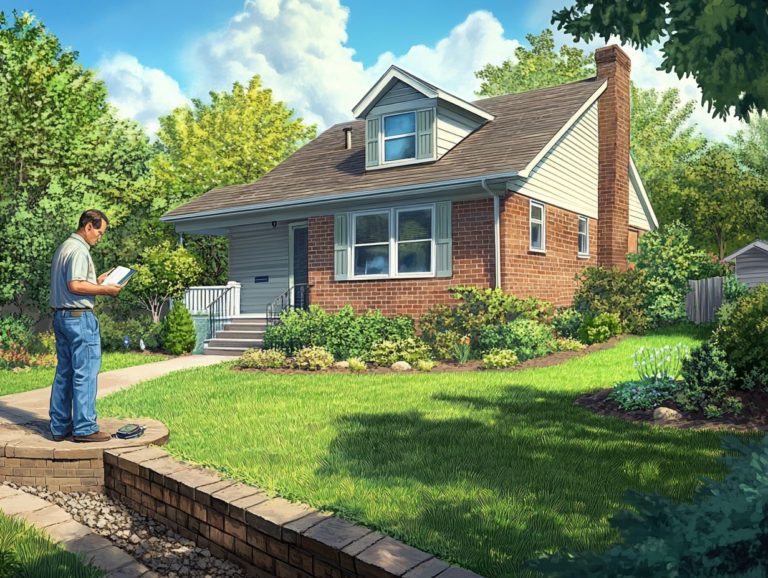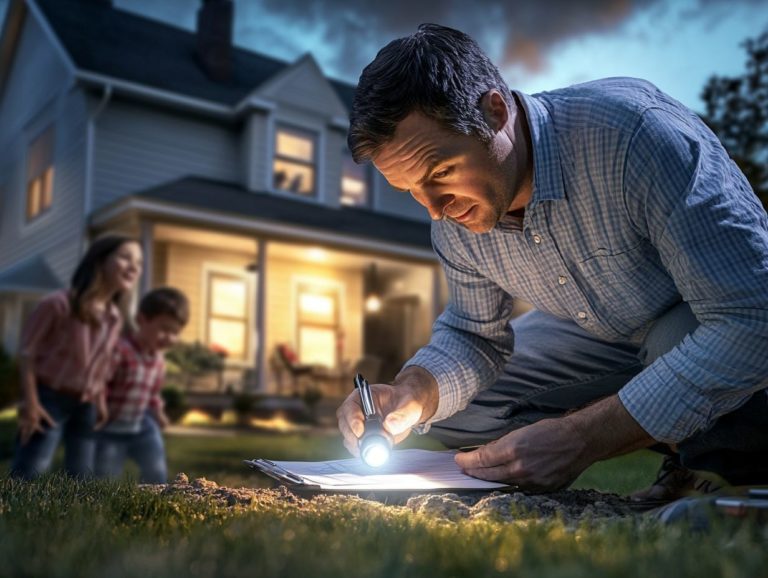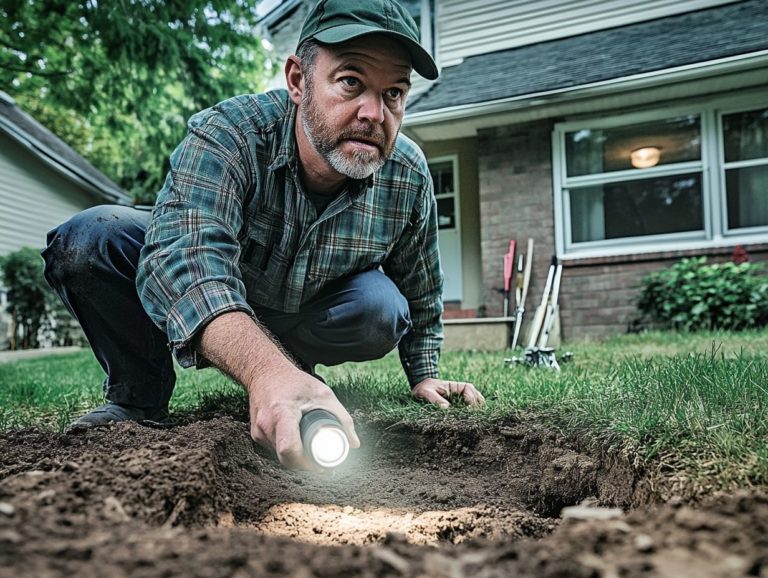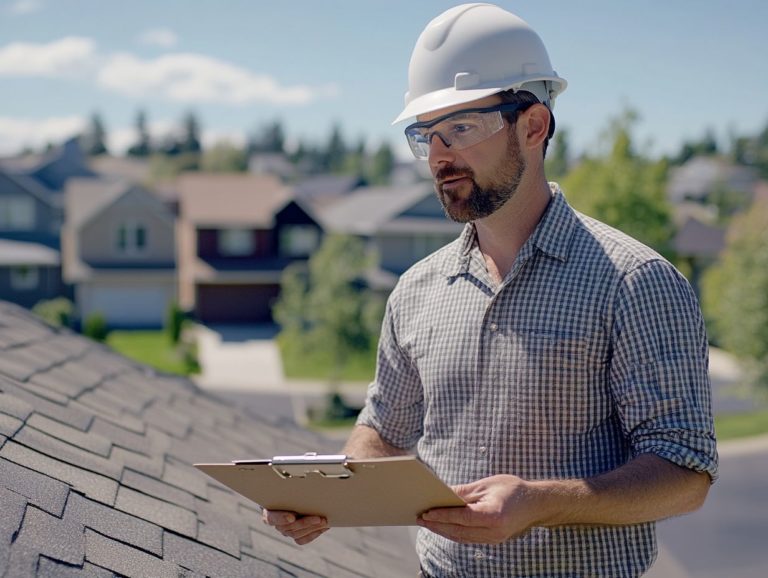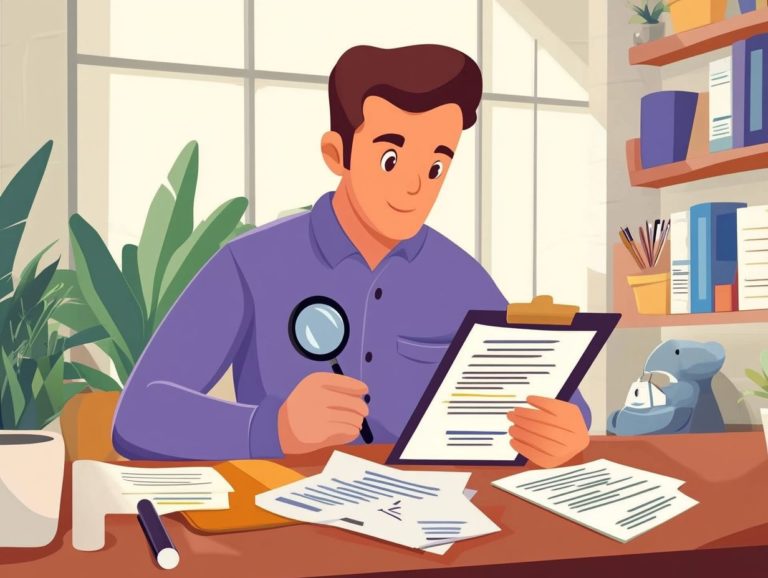Understanding the Home Inspection Process
Buying a home is an exhilarating journey, yet it presents its own unique challenges.
One of the most critical steps in this adventure is the home inspection. This article outlines what a home inspection involves, underscores its importance, and guides you through the entire inspection process.
It also points out what to seek in a qualified inspector, common issues that might surface, and offers tips to prepare your property for a successful evaluation.
Whether you re embarking on your first home purchase or you re a seasoned homeowner, understanding these aspects will empower you to make informed decisions.
Contents
Key Takeaways:
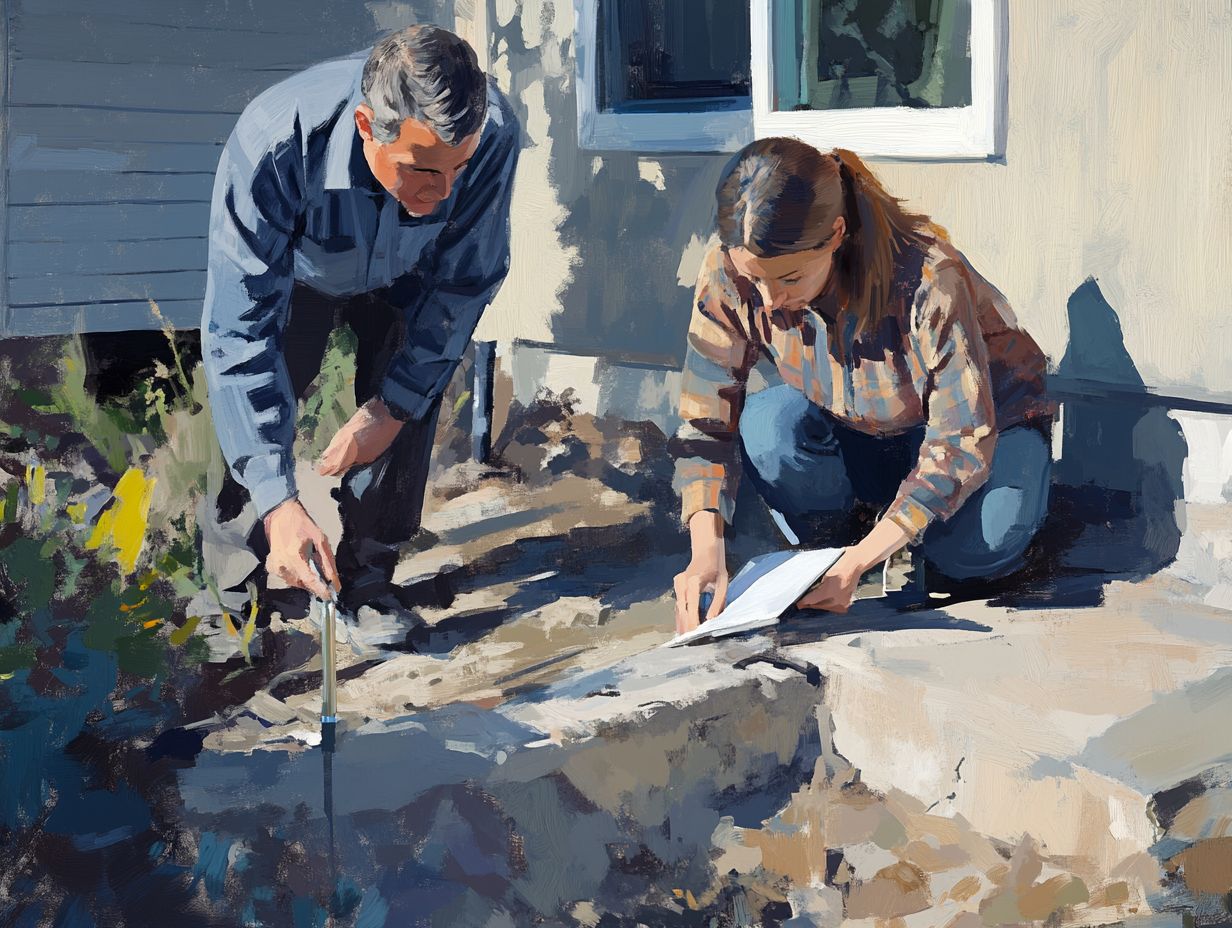
A home inspection is a visual examination of a property’s condition and systems, conducted by a trained professional to identify any potential issues. Having a thorough home inspection can save you time, money, and stress in the long run by finding problems you can’t see. To better understand the process, refer to resources like understanding the home inspection report. When choosing a home inspector, make sure to research their qualifications and credentials and ask for references from previous clients to ensure you are getting a reliable and experienced professional.
What is a Home Inspection?
A home inspection is an in-depth assessment of a property’s condition, carried out by a qualified home inspector.
This evaluation aims to uncover potential issues, safety hazards, and concealed defects that could impact the structural integrity and safety of the home.
This vital assessment is key to your home-buying journey, empowering you as a buyer to make well-informed decisions about your financial investment and negotiate confidently with sellers.
Definition and Purpose
The definition and purpose of a home inspection center on evaluating the structural integrity and overall condition of a property, ensuring it meets essential safety and livability standards.
This vital assessment allows you to uncover hidden defects and safety hazards that may not be immediately apparent.
A thorough inspection reveals crucial issues related to plumbing, electrical systems, and roofing elements that significantly impact the long-term value and functionality of the property.
By identifying these concerns early, you empower yourself to make informed decisions, talk to the seller about repairs, or even reconsider your investment altogether.
A comprehensive property evaluation protects you against unforeseen problems, leading to a more secure financial commitment.
Why is a Home Inspection Important?
A home inspection is essential for you as a home buyer. It boosts your confidence, safeguards your financial investment, and provides you with crucial insights that enhance your negotiation power.
By conducting a comprehensive assessment of the property, you’ll be able to pinpoint major repairs, safety hazards, and potential issues outlined in the home inspection report. This knowledge empowers you to make informed decisions about your purchase, ensuring you re well-prepared for what lies ahead.
The Benefits of a Thorough Inspection
A thorough home inspection offers you a wealth of benefits, including detailed insights that empower you to make informed decisions and craft effective repair requests. For more information, consider understanding the importance of home inspections, as it uncovers structural issues that may be lurking beneath the surface, ultimately bolstering your confidence in the investment.
By grasping the true condition of a property, you can enter negotiations with a clear understanding of necessary repairs and the potential costs involved. This knowledge equips you to advocate for reasonable concessions or adjustments to the selling price, creating a more equitable negotiation atmosphere.
A comprehensive inspection ensures you are well-informed and prepared, setting the stage for a smoother transaction and enhanced satisfaction with your purchase.
The Home Inspection Process
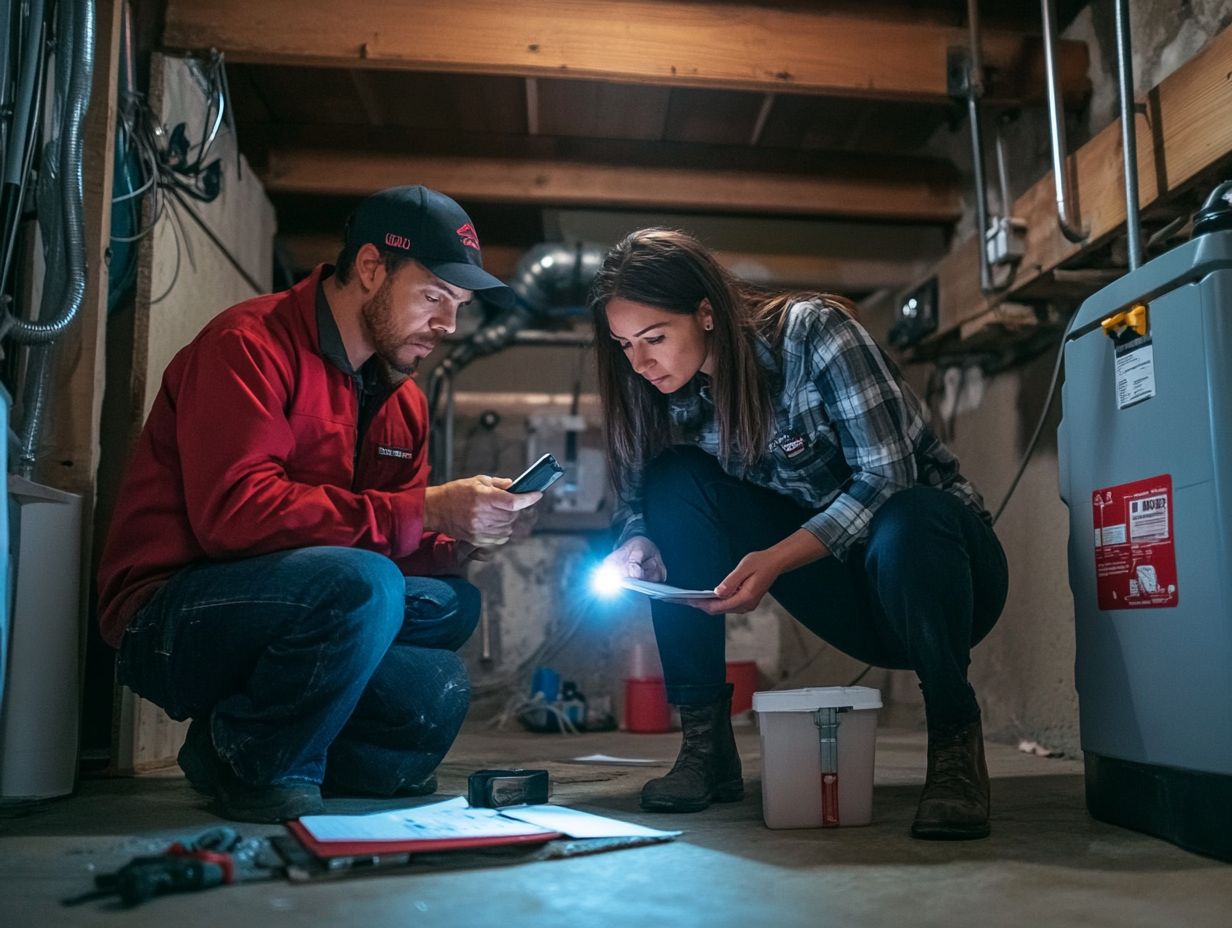
The home inspection process is a meticulously structured journey that guarantees thorough evaluations of essential home systems, such as roofing, plumbing, electrical, and HVAC, making it crucial to understand the process of home inspections.
Typically spanning several hours, this inspection invites your presence, allowing you to immerse yourself in firsthand insights about the home’s condition while engaging with the inspector to ask questions throughout the duration. To better prepare, it’s helpful to review understanding the home inspection process.
Don t wait get your home inspected before it s too late!
Step-by-Step Guide
The step-by-step guide to the home inspection process begins with selecting a qualified home inspector and scheduling a convenient time for the inspection. Once that’s arranged, it’s essential for you to prepare the space by ensuring all areas are accessible, which means unlocking any gates or doors. For more details, refer to our resource on understanding the home inspection process. This preparation is essential for a smooth evaluation.
During the inspection, the inspector will carefully check various components of your home, including the roof, foundation (the base of your home), plumbing, and electrical systems. To better understand how long this assessment takes, consider reviewing the home inspection process timeline, as each aspect requires careful assessment to uncover any potential issues that could impact safety or property value.
After the inspection, a detailed report will be generated, serving as an essential document for any follow-up actions you may take, such as negotiating repairs or making informed decisions about your property.
What to Look for in a Home Inspector
Selecting the right home inspector is vital for a successful home inspection. You need someone with the right qualifications to deliver an accurate property evaluation. It s essential to verify that the inspector is certified by reputable organizations such as the American Society of Home Inspectors. This ensures they are well-equipped to interpret inspection findings and provide you with a thorough and reliable home inspection report.
Qualifications and Qualifications
When you re in the market for a home inspector, pay close attention to their qualifications; these factors are vital indicators of their competence and reliability. Make sure they possess relevant certifications from recognized organizations, as these signify their training in essential areas like building codes, structural integrity, and safety standards.
Seek out inspectors who have completed accredited programs and are members of professional associations since such affiliations typically require ongoing education to keep them aligned with the latest industry practices. Hands-on experience in the field is another key component that can significantly enhance their ability to spot potential issues.
Seasoned inspectors have a keen understanding of common pitfalls and can offer valuable insights and recommendations, ultimately aiding you in making well-informed decisions.
Common Issues Found During Home Inspections
During home inspections, you ll often encounter issues such as structural problems, outdated electrical systems, and plumbing systems that may conceal hidden defects or necessitate substantial repairs. Recognizing these potential pitfalls is essential for you as a home buyer, as they can profoundly affect the property s safety, stability, and long-term maintenance costs.
Identifying Structural, Electrical, and Plumbing Problems
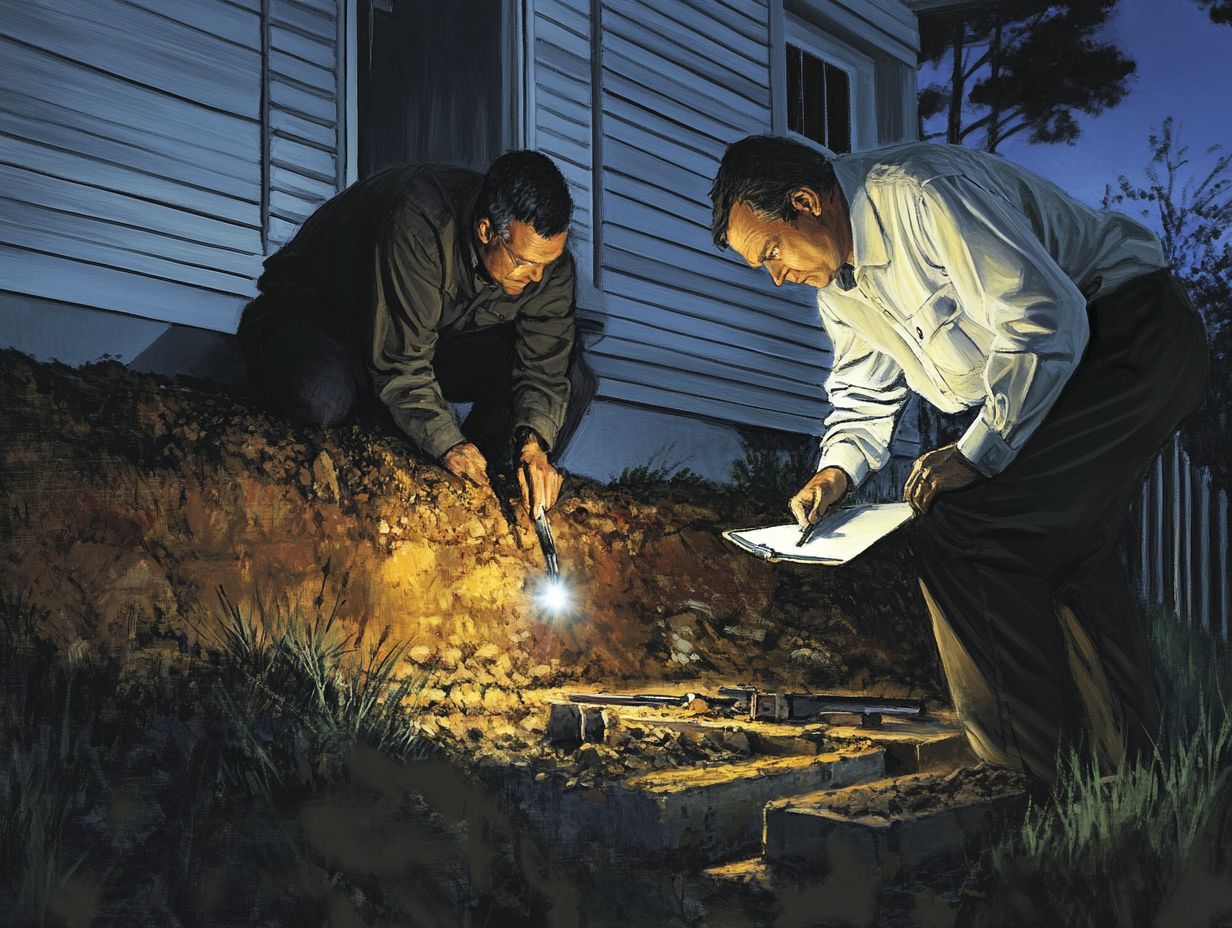
Identifying structural, electrical, and plumbing issues during a home inspection is essential for you, as these problems can present significant safety hazards and necessitate expensive repairs. Being vigilant about specific signs like cracks in the foundation, exposed wiring, or leaks under sinks can help you spot potential red flags.
For example, large gaps in walls or uneven floors may indicate foundational problems that could jeopardize the home’s integrity. Similarly, flickering lights or strange smells from electrical outlets often signal faulty wiring, which could lead to dangerous situations.
Plumbing issues, such as persistent dampness or water stains on ceilings, might suggest leaks that not only threaten the structure but also encourage mold growth, posing serious health risks. As a buyer, it s crucial to pay attention to these indicators, as addressing them after the purchase can result in significant financial burdens.
Tips for Preparing for a Home Inspection
Preparing for a home inspection demands meticulous planning and a keen eye for detail to ensure your property shines during the evaluation. Concentrate on essential maintenance tasks, tackle minor repairs, and develop a comprehensive inspection checklist that highlights any necessary renovations. Don t wait to address minor repairs; tackle them now to impress buyers later!
- Ensure all areas are accessible.
- Take care of minor repairs.
- Create a detailed inspection checklist.
This approach will make your property shine and captivate potential buyers!
How to Get Your Home Ready for Inspection
Preparing your home for inspection involves several essential steps that focus on maintenance and ensuring key areas are easily accessible.
Taking the time to clean and declutter boosts the visual appeal and allows inspectors to access vital systems such as plumbing and electrical without any obstacles.
Gather your important documents to show how well you care for your home! This includes warranties and repair histories.
Address minor repairs, such as fixing leaky faucets or patching up wall holes, that could be flagged during the inspection.
By carefully addressing these issues, you can create a more favorable atmosphere that emphasizes your home’s overall condition and value.
Frequently Asked Questions
Why Get a Home Inspection?
The purpose of a home inspection is to evaluate the condition of a home and identify any potential issues or defects. For a deeper insight into this process, you can refer to understanding the home inspection process. This helps home buyers make informed decisions and negotiate repairs or adjustments in the purchase price.
How Long Does a Home Inspection Typically Take?
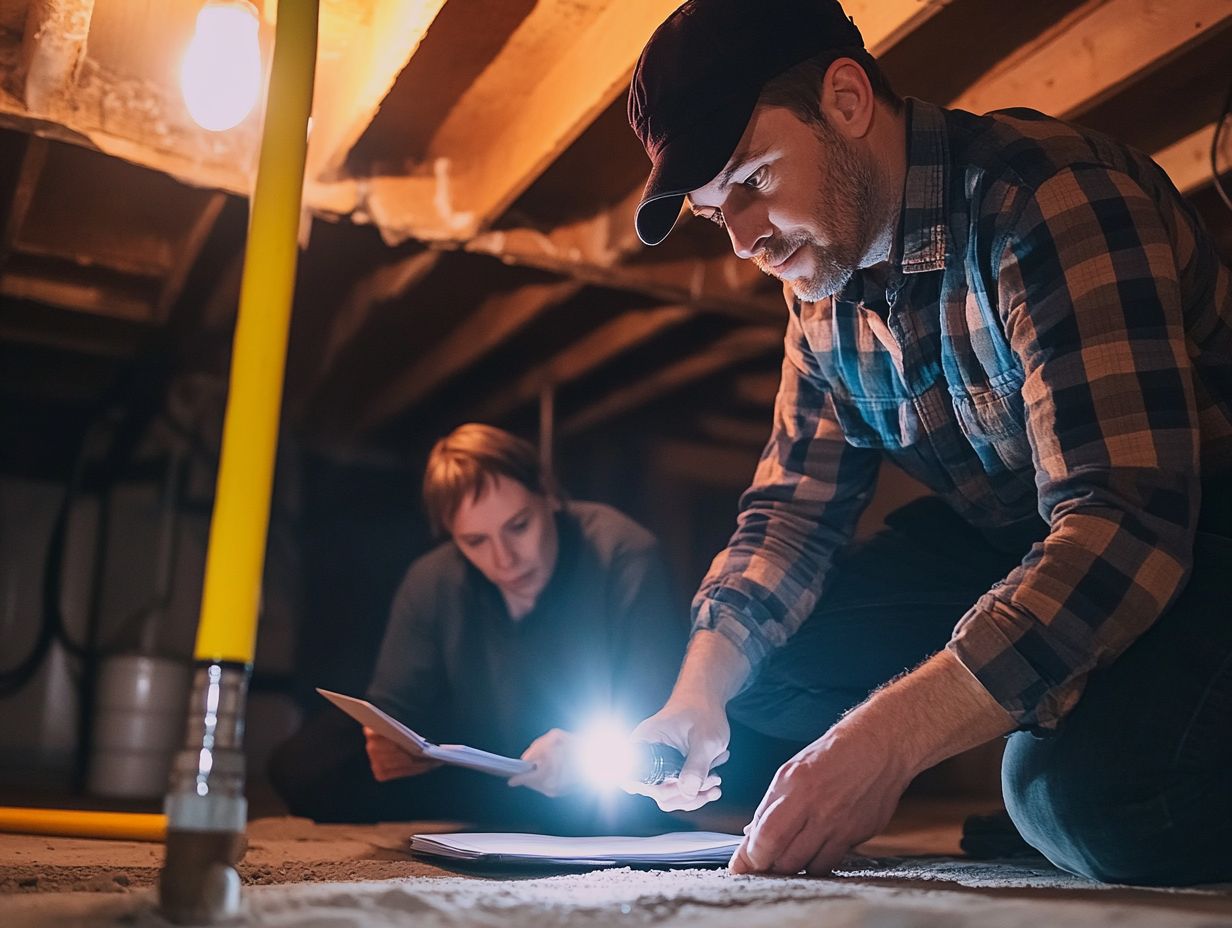
The duration of a home inspection can vary depending on the size and age of the home, but on average, it takes 2-3 hours. Larger and older homes may take longer to inspect due to more complex systems and potential issues.
Who Should Be Present During the Home Inspection?
It is recommended for the home buyer and their real estate agent to be present during the home inspection. This allows for any questions or concerns to be addressed in real time and provides the buyer with a better understanding of the home’s condition, including understanding the home inspection timeline.
What Areas of the Home Are Typically Included in a Home Inspection?
- Exterior and interior of the home
- Roof
- Foundation
- Plumbing
- Electrical systems
- HVAC systems
- Appliances
The inspector will also check for any signs of water damage, mold, or pest infestations.
Can a Home Fail a Home Inspection?
A home inspection is not a pass or fail test. The purpose of the inspection is to inform the buyer of any potential issues or defects in the home. To better understand what to expect, sellers can benefit from understanding the home inspection process for sellers. The buyer can then decide if they are willing to move forward with the purchase or negotiate repairs with the seller.
Do I Need to Be Present for the Final Walkthrough?
It is not necessary for the home buyer to be present for the final walkthrough, but it is recommended. This allows the buyer to ensure that any requested repairs were completed and to check the overall condition of the home before closing the deal.
Start your preparations today and ensure a smooth inspection process!

